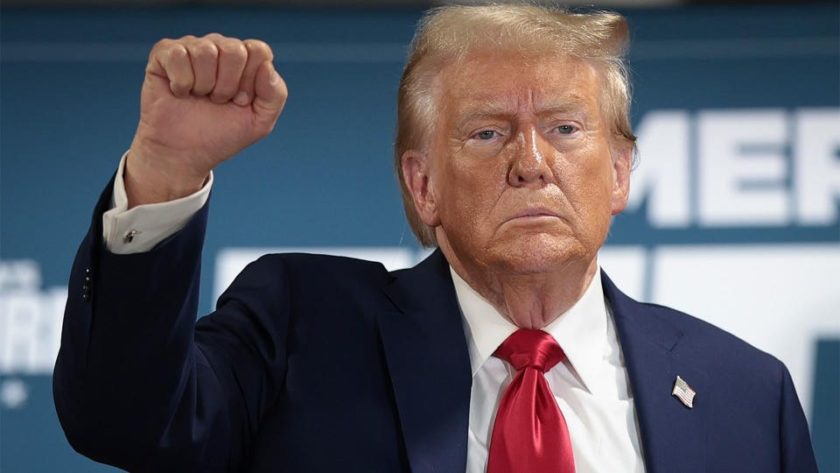Three stories
EY’s blockchain lead Paul Brody thinks decentralized finance (DeFi) could be coming to everyday consumers. The EY team usually focuses its attention on enterprise blockchain, but the red-hot fintech market, and its mirror image in DeFi, has caught Brody’s eye. According to his theory, platforms such as Robinhood, PayPal and Square could look to integrate increasingly popular DeFi applications.
- “If I had to make a bold prediction, I think by the end of 2021 at least one major financial institution will up the game on everybody else by offering some form of consumer DeFi, accessible through their single transactional window to a large consumer base,” he told CoinDesk’s Ian Allison.
- In August, Brody wrote a CoinDesk op-ed arguing enterprises would use DeFi if it weren’t so public.
- Meanwhile, Terraform Labs, the creator of Cosmos blockchain-based “volatility-free” tokens used to buy synthetic stocks, has brought in $25 million from the likes of Galaxy Digital, Coinbase Ventures, Pantera Capital and others.
A bitcoin exchange-traded fund (ETF) is unlikely, until the cryptocurrency’s market cap nearly quintuples to $2 trillion, Ark Investment Management CEO Cathie Wood said at Tuesday’s ETF Trends Big Ideas event. The long-sought financial instrument would lead to more institutional involvement from firms that want indirect exposure to bitcoin’s volatility.
- The Securities and Exchange Commission has yet to approve a bitcoin ETF, saying that the underlying asset is too illiquid and could be manipulated.
- That said, Wood thinks the momentum is in bitcoin’s favor, with blockchain advocates like Gary Gensler coming into key regulatory positions.
- Taking the cynical view, former Goldman Sachs CEO Lloyd Blankfein said regulators would put the hammer down if bitcoin got big enough.
SkyBridge Capital’s Anthony Scaramucci, a johnny-come-lately to the bitcoin parade, compared the community driving up GameStop (NYSE: GME) stock to bitcoin’s.
For the uninitiated, GameStop has become the choice stock for a group of so-called degenerate gamblers looking to beat out a hedge fund that has gone short on the dying video game retailer. Looking to “squeeze” the Wall Street firm’s short positions, a disparate group of traders organized on Reddit have “aped into” GME, driving up the price.
- Melvin Capital and Citron Capital, the Goliaths to the degenerate Davids, have reportedly been forced to close their positions at “a loss of 100%,” according to Bloomberg.
- It’s really a sight to behold. Describing the price action, Scaramucci threw around terms like “democratizing” and “decentralizing” and called the whole show a “proof of concept that bitcoin is going to work.”
- For those in this decentralized rabble looking to professionalize, Bitcoin booster and partner at Morgan Creek Digital,Anthony Pompliano has set up a crypto jobs board.
At stake
This past Saturday, a decentralized organization, Flamingo DAO, dropped $761,889 on a single token. Not just any random crypto, this was a non-fungible, one-of-a-kind, tokenized set of pixels, called an NFT. It was also part of cryptocurrency history.
CryptoPunks were an early experiment with NFT art. They proved the theory that the technology underlying cryptocurrencies like bitcoin could be applied to any digital artifact. From mortgages to Monets, anything could be made scarce, and therefore valuable, through tokenization.
This includes the “Alien” punk that Flamingo bought. One of nine such pixelated portraits, this particular NFT was highly sought after. @0x_b1, a DeFi personality who also bid on the item, valued it at roughly $1 million.
CoinDesk sat down with Chris Furlong, a member of Flamingo DAO, to discuss why the 4,800 ETH fund bought the Alien punk and what’s next for NFTs.
Can you give any more clarity on why Flamingo decided to invest in an early digital collectible?
There’s a great passion within our membership about the importance of Cryptopunks. We place a value on NFTs with historical significance and want to be good stewards of items we hold in our collection. There’s also a hedge with punks because they are priced in ETH, have the longest historical sales record, and ultimately serve as a store of value. Some may laugh, but we believe punks are just as much a store of value as bitcoin is. This purchase is a reflection of our long term bullish sentiment on the entire crypto space.
What is Flamingo’s ultimate investment strategy?
There are many avenues and templates to follow. The B20 Collection from Metapurse just showed us how you can take a big ticket NFT purchase and allow the community to participate through sharding, tokenization and creating a metaverse experience. That’s one possible avenue. We are exploring several ideas, but our members are very excited about the concept of giving Punk #2890 agency in the Ethereum community. We want him to be an active participant, a citizen of the world we are all building. How this will happen is still a matter of experimentation. We’ll take it slowly with the punk who fell to Earth.
It seems like every other week there’s a new record NFT sale. Why do you think this little corner of crypto is heating up?
I think there was a real pent-up desire to participate in the Ethereum ecosystem. Early development was focused on building out primitives and tooling. This required development and engineering skills. After that came DeFi, which was the realm of quants, traders and coders. All of us saw the potential of the ecosystem, but the ability to participate was limited to the few. NFTs opened Ethereum and crypto up to so many people who were following its progress but didn’t have a way to actively engage it.
What will the metaverse look like by 2030?
In 2030, the metaverse will be more fluid, interoperable both between online worlds and the real world. Digital objects will appear in houses, you will move freely online. Everything will become blended, and if done correctly it will feel natural. By allowing ourselves to expand the definition of space, which today is governed by the physics of the concrete to one that includes digital realms, we can perhaps reconcile the dichotomy we struggling with where information moves at the speed of light, but our bodies and senses are rooted in the same speed as our ancestors.
Is it worth asking whether crypto art is real, without getting into a debate over what constitutes real art?
No. It’s a disservice to the creators whose vision and beauty so many people are opening up to today. Art is always subjective, and its definition is best formed on an individual basis rather than being dictated by gatekeepers.
What other areas in NFTs are you excited by?
All of them. Digital art, avatars, collectibles, virtual worlds. There are so many exciting use cases that are being unlocked and discovered. While NFTs are mainly a creative playground today, in some cases literal toys, we will soon see NFTs used in broader applications like financial instruments and intellectual property rights.
Market intel
Bitcoin and global equities are trading lower, while the anti-risk U.S. dollar is climbing ahead of a scheduled U.S. Federal Reserve meeting today. Bitcoin dropped below $30,000, a more than 5% drop on the day, CoinDesk’s Omkar Godbole reports.
- The Fed Reserve is expected to leave the interest rate unchanged near zero and maintain its liquidity-boosting, bond-purchasing plan at around $120 billion per month. This could favor bitcoin’s deflationary narrative.
- Though there’s uncertainty whether Fed Chairman Jerome Powell will announce a gradual unwinding of stimulus programs, essentially as a precautionary measure to stymie inflation.
Although inflation hasn’t yet arrived – it has consistently fallen below the Fed’s 2% target – many economists project that coronavirus-led fiscal and monetary stimulus, to the tune of trillions of dollars and counting, could have knock-on effects.
Quick bites
- PAPER PUSHERS: Colombia, Estonia are the latest governments to host the bitcoin white paper. (CoinDesk)
- FIGHTING CANCER: with crypto. The American Cancer Society (ACS) has launched a cryptocurrency fund to support research. (CoinDesk)
- CRYPTO VENTURE: Union Square Ventures will put ~30% of its freshly minted $250 million 2021 Core Fund in crypto-related investments. (CoinDesk)
- BITCOIN BUBBLES: Are good, according to an assistant professor of marketing at USC Marshall School of Business. (CoinDesk op-ed)
- SAVING DEMOCRACY? Alex Gladstein argues privacy-focused tech like Signal and the pseudonymous bitcoin should not be casualties in the fight against extremism. (Time)
- ANOTHER ACTION: Ripple faces a new class-action lawsuit over unregistered XRP sales in Florida. (The Block)
Who won Crypto Twitter?





